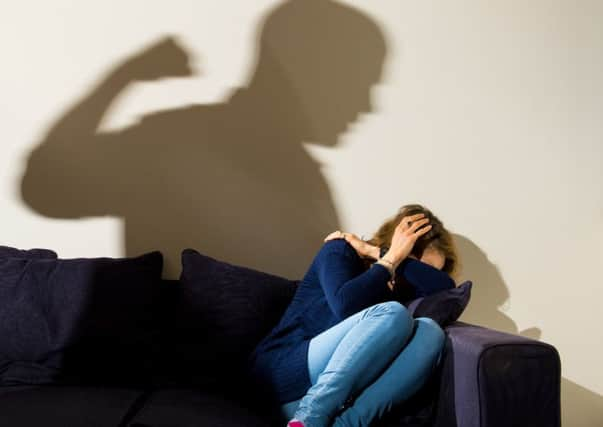Emma Pearmaine: Reporting abuse just start of hard road for victims


For many years, I have been advising victims and campaigning for greater support and awareness of a crime that affects millions of lives in Britain.
Victims of domestic violence live in a harrowing matrix of lies and fear, which they often cannot escape from without help from the police and other professionals. But what happens when that help is not available?
Advertisement
Hide AdAdvertisement
Hide AdIn 2014, the Home Office launched a new crime statistics framework with 21 potential outcomes for recorded crimes. The aim was to replace the high number of cases recorded as ’undetected’. A few years in, my team, which often represents people who are being abused at home, wanted to understand just how many accusations of abuse result in a formal charge. So we asked police forces across the country to share their date about recorded outcomes of domestic crimes for the past two years.
I was expecting to learn that some cases were discontinued, but to read that a staggering 34 per cent of cases nationally were dropped because the victim withdrew their support for a prosecution was a revelation – and not the positive kind. A further 23 per cent of cases were discontinued because of a lack of evidence, despite the fact that the victim supported a prosecution, and despite the fact that a suspect had been named and identified.
Across Yorkshire’s police forces in 2016, 12,223 domestic violence crimes did not result in a charge due to evidential difficulties. In 14,533 instances, the victim withdrew support after making a formal accusation that a crime had taken place.
Victims who live with their abuser are at serious risk of further harm after they have reported the violence. They need an immediate and significant amount of practical and emotional support to maintain the accusation through to a prosecution.
Advertisement
Hide AdAdvertisement
Hide AdAlthough not all survivors of domestic abuse want to see the perpetrator face prosecution, my experience tells me that many do. Sadly, our research shows just how frequently victims of domestic violence find themselves unable to provide evidence, or to support a charge and prosecution due to very real fears about their personal safety. When children are involved, it gets even more complicated.
The first formal accusation of domestic violence is rarely the first incidence. Victims of may have found the courage to come forward in a moment of confidence, but their fears about their ongoing safety may leave them in a position where they no longer want to support a complaint. Victims are often either unable to provide evidence about their abuse, or decide to withdraw what evidence they have presented, because they feel coming forward will put themselves, their children and family at significant risk.
It requires a targeted effort to help them through the days, weeks and months that follow but sadly, Government cuts means such help is often no longer available.
These latest figures clearly demonstrate that far greater resources are needed to support victims, and to identify alternative avenues of building a case without putting the victim at risk.
Advertisement
Hide AdAdvertisement
Hide AdI regularly speak to police officers who deal with domestic abuse and I fully appreciate that they have a challenging job; these crimes are complex, sometimes subtle and often difficult to identify. Crimes of domestic violence come in many shades of grey and these figures tell us that more resources and more training for officers is required so that more of these offences result in a formal charge.
All too often, women simply do not feel safe enough to leave despite having had the courage to make a true and recognised accusation to the police. In the very worst cases, they lose their life to their abuser.
Victims must never be blamed for coming forward, if justice is to be served on a greater scale.
While the Government pledges more support, it has so far mostly been cutting funding for refuges and other support organisations – making it harder to guarantee the personal safety of victims and their children.
Advertisement
Hide AdAdvertisement
Hide AdApparently, Theresa May is looking into the handling of domestic abuse. She has even promised to transform how the problem is dealt with; something that is clearly called for. But transformations don’t come cheap and I fear that front line services will continue to struggle with a lack of resources.
While we wait for Mrs May to deliver, I want to urge everyone in the front line to go just a little bit further in supporting those brave men and women who come forward as victims of domestic abuse. Rest assured that many more, never do.
Emma Pearmaine is director of family services at Yorkshire law firm Simpson Millar.